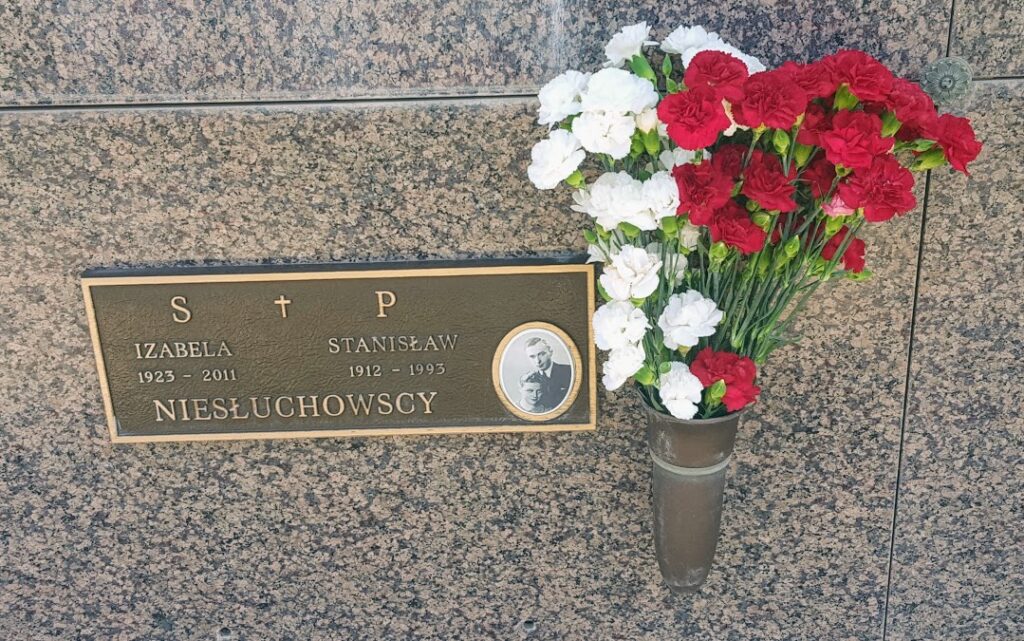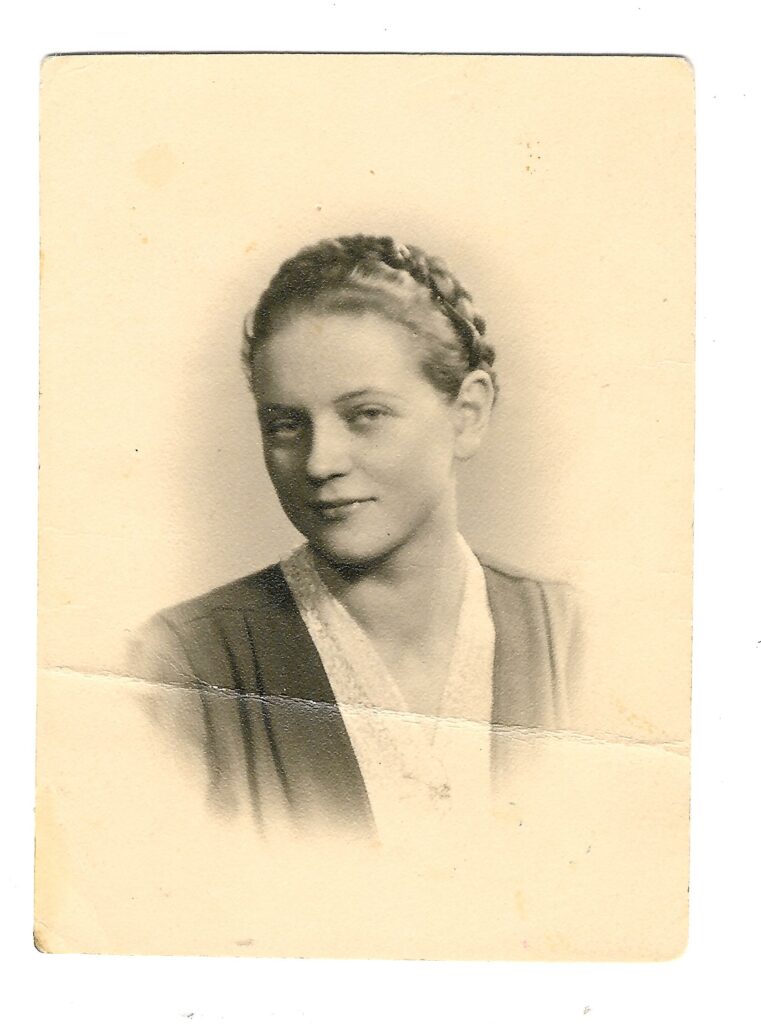“A mother is only as happy as her unhappiest child.”
Nicole Helget, Stillwater
When the Warsaw Uprising broke out, I was 6 months old. We lived in the center of the city, where the fighting was most brutal. One day, the group of insurgents brought us two infants whose mothers were killed by the Germans. One of them was a Jewish boy. Warsaw was regularly bombed, and the food was scarce. Since I was breastfed, my mother was an obvious choice for the young fighters looking for help. The soldiers promised her extra food rations. So, she took over the duties of caring for three screaming babies. Happily, I was told. Later, when we could take grown-up foods, two temporary siblings of mine were passed into the other hands. My mother told me that after the war ended, she tried to find these two, but in the general turmoil, when we were mercilessly expelled from our apartment, which was leveled afterward, that was not the priority.
I remember my sister and when growing up in a Communist Poland. Mother was a helicopter parent before there were helicopters. She was our class mother. My best teacher used to ask her how to raise her only son. All this while she tried to finish her education, interrupted by the German invasion. She participated in all my violin rehearsals and many volleyball games. So when I boarded the plane to come to the United States, she was crying. My sister later told me mother didn’t think she’ll see me anymore.
No surprise then, when the opportunity came, my mother didn’t think twice about moving to the United States. My sister was already here. But the final trip to California she did make alone. Father died shortly after they came, while they were still living with my sister in Miami.
I remember picking her up at LAX. She clutched the urn with the ashes of her husband.
But in this country, she blossomed. At seventy, in the local church, she took English as a second language class. She started her English education back in Warsaw, wanting to communicate better with her grandchildren. Here, the mother overcame the initial shock of shopping in a supermarket. She found a new group of friends. She was relentless in trying to interact with her grandkids. We drove her most of the Sundays to church. She was even eager to learn how to drive, but at that point, I had to draw the line.
The social benefits were not the main blessing of her coming to live with us, however.
A month after she came, we’ve arranged for a mammogram. It showed cancer. In a couple of weeks, a friend of mine did a mastectomy. She was free of disease for the rest of her life. But then health problems started to creep up. On our way from Sunday church, I’ve noticed she was developing a stroke. I drove her to my hospital, where she was admitted. Knowing her will and determination, I wasn’t surprised she recuperated so nicely. Then, while on a walk, she fell and broke her hip. Fortunately, in a few minutes, my son was driving home and carried mother back to her place. We took her to the hospital, where she ended up on the operating table the same evening. Another friend of mine fixed her hip. A year or so later, my mother needed a pacemaker, and she asked me to do it. I didn’t think twice, but was not prepared for the backlash from some of the people in the hospital. The arguments were mostly emotional (how could you operate on your own mother?). But, well, you don’t say no to your mother (except when she would like to learn how to drive at seventy).
During all this time, mother had her group of friends, mostly Polish expatriates, mostly women. I attended some of those gatherings. Then I joked that women shared their husbands, their cooking, how well did they feed their husbands, and how all of them died. Mother saw many of the kids’ hockey games and Jason’s concerts. She even visited Warsaw, stayed with her friends, and did all the traveling on her own.
But later, her mental condition began to deteriorate. Diagnosis of Alzheimer’s was mentioned and her internist, another friend of mine, started treatment. After we found out she left the gas on after cooking, we had to withdraw her kitchen privileges. Then, she broke another hip. Again, the surgery was done quickly, and she was up with PT the same evening. I remember walking with her to Sunday communion. I held her tight by the elbow since she didn’t want to show up with a walker. Stubborn, as always.
Then it got to the point when she started to require supervision around the clock. With a heavy heart, we found her a place that could provide such care. There we visited her often. She particularly enjoyed the visit from my girls in their high school graduation outfits. For the same year’s Christmas, Bonnie arranged for a big family gathering and mother attended the celebration, this time with her walker. She was clear enough to sing some Polish carols. We called it “our best Christmas ever”. It was also her last Christmas. Soon, she stopped recognizing her visitors, although I had the impression she recognized me to the end. On Easter morning, I noticed her breathing quite heavily. She didn’t seem to respond to me. Her internist called me asking if we wanted to take any extra measurements. We didn’t. My son requested to be there, and I drove him back to see my mother. She died on the same day. On Easter Sunday, the most important holiday for her.
We buried her a few days later. Next to her husband.

During the funeral, I recalled she said that her stay in the United States was the most enjoyable time in her life.


